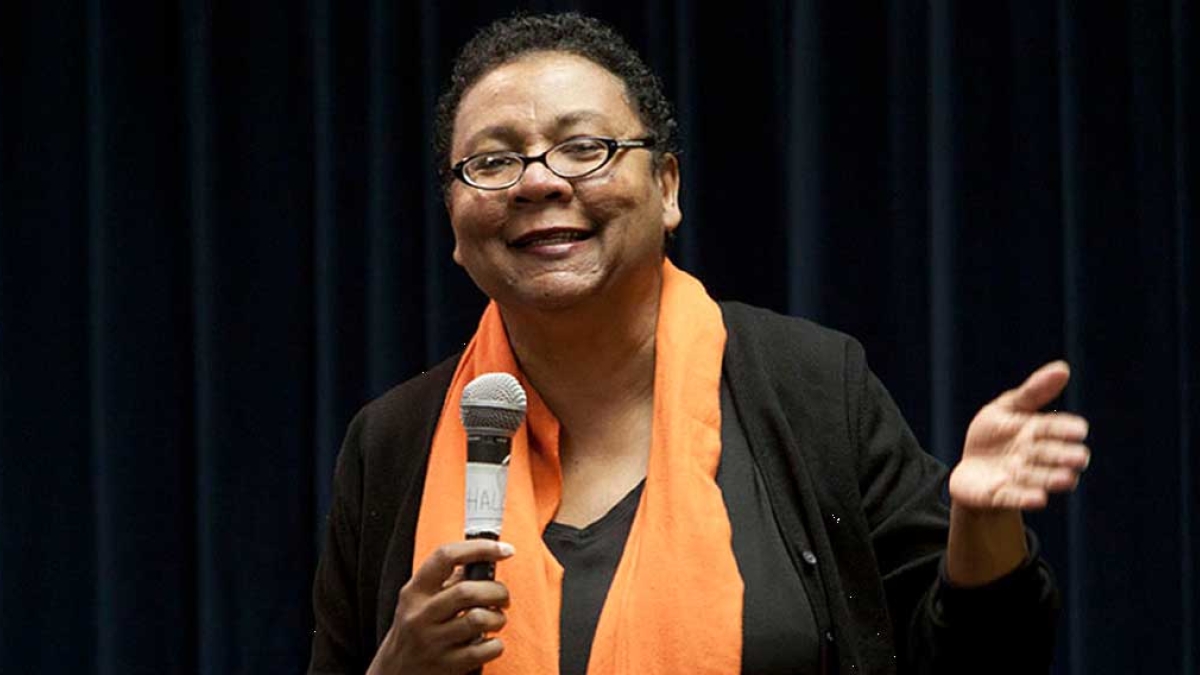Project Humanities spring kickoff offers week of events

Question: What are “the humanities”?
Answer: Connecting with each other and making meaning of our individual and shared experiences.
Having launched Project Humanities just over a year ago around varied ways of exploring and articulating what it means to be human, the spring 2012 kickoff at ASU offers a week of major events featuring nationally known speakers such as bell hooks and Carolivia Herron, and discussions of the book and movie “The Help.”
hooks, a nationally known public scholar and author, will speak at 7 p.m., Feb. 13, in Katzin Concert Hall on the Tempe campus on “Race and Gender: Reimagining the Past.” Q&A session will follow. Doors will open at 6:30 p.m. and there is limited seating.
On Feb. 14, hooks will participate in “A Conversation with bell hooks: 'The Help,' the movie and the book,” at 3 p.m. in La Sala Ballroom C on ASU’s West campus.
On Feb. 15, Carolivia Herron, the Project Humanities Distinguished Visiting Scholar, will be a panelist in an event titled “Truth Is Overrated: A Debate,” from 2 to 3:30 p.m., in West Hall room 135, Tempe campus.
Other panelists at the debate, which will have a live Twitter feed, will be Lawrence Krauss, professor of physics and director of ASU Origins Project; Shirley Mays, dean, Phoenix School of Law; and Francoise Mirguet, professor of Hebrew, School of International Letters and Cultures.
Moderator will be Douglas Sylvester, interim dean, Sandra Day O’Connor College of Law. (To follow on Twitter: #ASUTruthDebate.)
bell hooks is a pen name for Gloria Jean Watkins, who purposely spells her name with lower case letters for two reasons, according to her various biographies.
Using bell hooks, her great-grandmother's name, “celebrates female legacies and is in lower case because ‘it is the substance of my books, not who is writing them, that is important,’” she explains.
hooks is known as a black feminist critic and theorist whose books include “Ain't I a Woman: Black Women and Feminism,” “Reel to Real: Race, Sex, and Class at the Movies” and “Feminism is for Everybody: Passionate Politics.”
She is one of the major cultural critics of our time and is a specialist in race and gender issues in contemporary culture.
hooks, who attended segregated schools in Kentucky, also has written three children’s books, including “Happy to be Nappy.”
She holds a B.A. from Stanford University, an M.A. from the University of Wisconsin, and a Ph.D. from the University of California, Santa Cruz.
Another scholar and author noted for writings on nappy hair is Carolivia Herron.
Herron, a specialist in epic literature, wrote “Nappy Hair” when she was a professor at Harvard University to illustrate how the African tradition of call and response “can be compared to the great oral traditions of ancient Greeks and other cultures.”
She was prompted, she said, by her uncle Richard’s storytelling, and particularly his tales about hair.
Though she intended the book to be more about African rhythms than hair, the book, which was published in 1997, has gained notoriety for its emphasis on the “exuberance” of having very, very wiry and curly hair. In 1998, some African American parents in Brooklyn verbally accosted a teacher who read the book with her African American and Hispanic pupils, and it has become well known around the United States and even abroad.
Other events during Project Humanities Spring 2012 Kickoff Week include:
• “Literary Imaginary and the Poetics of Truth: A Symposium," Feb. 13-17, Tempe campus. More information.
• Screening of the film “Precious,” based on the novel “Push” by Sapphire, 6:30 p.m., Cronkite Building room 138, Downtown Phoenix campus. Discussion follows film.
• “Speaking Racial Truth to Power Through Art,” 6:30-8 p.m., Feb. 16, College of Nursing and Health Innovation, Building 2, room 110, Downtown Phoenix campus. Speaking: Vernon Burt, artist.
• “Erotica and the Erotic in the Middle Ages and Renaissance,” Sept. 16-18, annual conference sponsored by the Arizona Center for Medieval and Renaissance Studies. Registration required: http://www.acmrs.org/.
• “Journalism and the Humanities: Sources of Estrangement, Future Prospects,” 8:30 a.m.-noon, Feb. 17, Social Sciences room 109, Tempe campus. Two panel discussions. Information: ihr.asu.edu.
• “Poetic Truths: African American Poetry From Harlem Renaissance to Hip Hop,” 7-10 p.m., Feb. 17, at Heritage Square, 7th Street and Monroe, Downtown Phoenix campus. The event includes poetry readings an open mic.
All events are free and open to the public although registration is required for the ACMRS conference. For more information about the events and Project Humanities, go to humanities.asu.edu.